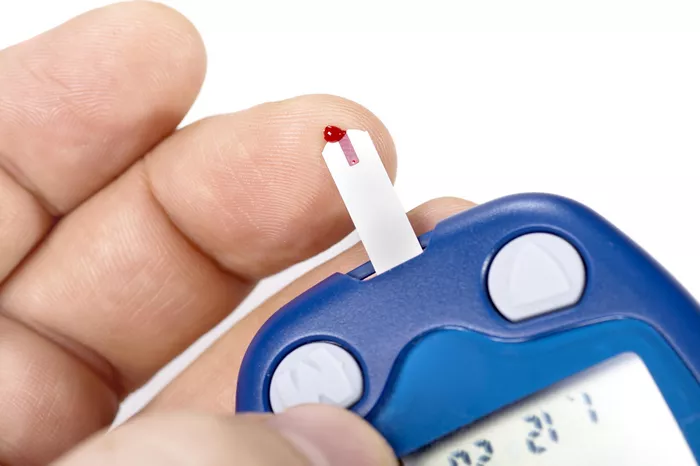Blood sugar, or glucose, is the primary energy source for our bodies. For people with diabetes, maintaining optimal blood sugar levels is crucial to prevent complications and ensure a healthy life. This comprehensive guide explores the optimal blood sugar levels, how to achieve and maintain them, and the latest advancements in blood sugar monitoring.
The Importance of Blood Sugar Control
Blood sugar levels are measured in milligrams per deciliter (mg/dL) in the United States and millimoles per liter (mmol/L) in most other countries. For individuals without diabetes, blood sugar levels are typically regulated by the body within a narrow range. However, for those with diabetes, the body’s ability to regulate blood sugar is impaired, necessitating careful monitoring and management.
Maintaining optimal blood sugar levels helps prevent both short-term and long-term complications. Short-term complications include hyperglycemia (high blood sugar) and hypoglycemia (low blood sugar), both of which can be life-threatening if not addressed promptly. Long-term complications can include cardiovascular disease, neuropathy, nephropathy, and retinopathy.
Defining Optimal Blood Sugar Levels
The optimal blood sugar levels can vary slightly depending on the individual’s age, the type of diabetes, and specific health conditions. Generally, the American Diabetes Association (ADA) and other health organizations provide the following guidelines for optimal blood sugar levels:
Fasting Blood Sugar (before meals):
- Normal: Less than 100 mg/dL (5.6 mmol/L)
- Prediabetes: 100-125 mg/dL (5.6-7.0 mmol/L)
- Diabetes: 80-130 mg/dL (4.4-7.2 mmol/L)
Postprandial Blood Sugar (1-2 hours after meals):
- Normal: Less than 140 mg/dL (7.8 mmol/L)
- Diabetes: Less than 180 mg/dL (10.0 mmol/L)
HbA1c (Average blood sugar over the past 2-3 months):
- Normal: Less than 5.7%
- Prediabetes: 5.7%-6.4%
- Diabetes: Less than 7% (However, some individuals may benefit from even tighter control, aiming for less than 6.5%)
These targets are general guidelines and may need to be adjusted based on individual circumstances. For instance, older adults or those with significant comorbidities might have higher target ranges to avoid hypoglycemia.
Factors Influencing Blood Sugar Levels
Various factors can influence blood sugar levels, making management complex and highly individualized. Key factors include:
Diet: Carbohydrates have the most significant impact on blood sugar. Understanding carbohydrate counting and the glycemic index of foods can help manage postprandial spikes.
- Physical Activity: Exercise increases insulin sensitivity, allowing the body to use glucose more effectively.
- Medications: Insulin and oral diabetes medications can help control blood sugar but require careful dosing and timing.
- Stress: Physical or emotional stress can increase blood sugar levels due to the release of stress hormones.
- Illness: Infections or illnesses can raise blood sugar levels, necessitating adjustments in management.
- Sleep: Poor sleep can negatively affect blood sugar regulation and insulin sensitivity.
- Hydration: Dehydration can lead to higher blood sugar levels.
Achieving Optimal Blood Sugar Levels
Achieving and maintaining optimal blood sugar levels involves a multifaceted approach:
- Healthy Eating: A balanced diet rich in fiber, lean proteins, healthy fats, and low-glycemic carbohydrates helps maintain stable blood sugar levels. Regular meals and snacks are crucial to avoid spikes and dips.
- Regular Physical Activity: Exercise helps manage weight and improves insulin sensitivity. Both aerobic exercises, like walking and swimming, and anaerobic exercises, such as weight training, are beneficial.
- Medications: Adherence to prescribed medications, whether insulin or oral hypoglycemics, is essential. Monitoring blood sugar levels helps in adjusting doses appropriately.
- Monitoring Blood Sugar Levels: Frequent monitoring using glucometers or continuous glucose monitors (CGMs) provides valuable data to manage diabetes effectively.
- Education and Support: Diabetes education programs and support groups can provide essential knowledge and encouragement.
- Routine Healthcare Visits: Regular check-ups with healthcare providers allow for the early detection and management of complications.
Blood Sugar Monitoring Technologies
Blood sugar monitoring has evolved significantly, offering new technologies that improve accuracy, convenience, and patient outcomes.
- Glucometers: Traditional glucometers require a blood sample from a finger prick. Advances have made these devices more accurate, faster, and easier to use. Some glucometers now connect to smartphones, enabling better tracking and analysis of blood sugar trends.
- Continuous Glucose Monitors (CGMs): CGMs provide real-time blood sugar readings every few minutes through a sensor placed under the skin. These devices can alert users to high and low blood sugar levels, enabling timely interventions. The data can be shared with healthcare providers for better management.
- Flash Glucose Monitoring (FGM): Similar to CGMs, FGMs provide continuous readings but require the user to scan the sensor to get the data. They offer a less invasive and more affordable option for continuous monitoring.
- Smart Insulin Pens and Pumps: These devices deliver insulin more precisely and can be integrated with CGMs to provide automated insulin delivery based on real-time blood sugar readings.
- Artificial Pancreas Systems: These closed-loop systems combine CGMs and insulin pumps to automatically adjust insulin delivery, mimicking the function of a healthy pancreas.
Advances in Blood Sugar Management
Recent advancements in blood sugar management include:
- Artificial Intelligence (AI) and Machine Learning: AI algorithms can analyze blood sugar data to predict trends and recommend personalized adjustments to diet, exercise, and medication.
- Telemedicine: Remote consultations and monitoring allow for more frequent and convenient check-ins with healthcare providers, improving diabetes management and patient outcomes.
- New Medications: Advances in diabetes medications, such as SGLT2 inhibitors and GLP-1 receptor agonists, offer new options for blood sugar control with additional benefits for cardiovascular and kidney health.
- Gene Therapy and Beta-Cell Regeneration: Experimental treatments aim to restore insulin production by regenerating beta cells or through gene therapy, offering potential long-term solutions for diabetes management.
Personalized Diabetes Management
Optimal blood sugar management is highly personalized. Factors such as age, type of diabetes, lifestyle, and comorbidities all influence the best approach. A personalized diabetes management plan should include:
- Individualized Targets: Blood sugar targets should be tailored to the individual’s health status and risk factors. For example, tighter control may be beneficial for younger individuals without significant comorbidities, while older adults may benefit from more relaxed targets to avoid hypoglycemia.
- Customized Meal Plans: Diet plans should be based on individual preferences, cultural considerations, and metabolic needs. Working with a registered dietitian can help develop a sustainable eating plan.
- Activity Plans: Exercise routines should be tailored to the individual’s physical capabilities and preferences. Incorporating a variety of activities can help maintain motivation and improve overall health.
- Medication Adjustments: Medications should be adjusted based on regular monitoring and feedback from the patient. This requires ongoing communication between the patient and healthcare provider.
- Psychosocial Support: Managing diabetes can be challenging and stressful. Access to psychological support and counseling can help individuals cope with the emotional aspects of diabetes management.
Challenges in Blood Sugar Management
Despite advancements in technology and medications, several challenges remain in achieving optimal blood sugar control:
- Adherence to Treatment Plans: Consistency in following diet, exercise, and medication regimens is critical but can be difficult to maintain over time.
- Access to Care: Socioeconomic factors, including access to healthcare services, medications, and monitoring devices, can significantly impact diabetes management.
- Education and Awareness: Continuous education is necessary to keep up with new developments and to understand how to effectively manage diabetes.
- Behavioral Factors: Psychological and behavioral factors, such as stress, depression, and diabetes burnout, can affect adherence and overall management.
Future Directions in Blood Sugar Management
The future of blood sugar management looks promising with ongoing research and technological advancements. Key areas of focus include:
- Non-Invasive Monitoring: Research is ongoing to develop non-invasive blood sugar monitoring methods, such as optical sensors and breath analysis, which would eliminate the need for finger pricks.
- Advanced Insulin Formulations: New insulin formulations aim to provide more stable and predictable blood sugar control with fewer injections.
- Personalized Medicine: Advances in genomics and personalized medicine may allow for more tailored treatments based on individual genetic profiles.
- Integrated Health Systems: Enhanced integration of health data through electronic health records and wearable devices can improve coordination of care and patient outcomes.
- Public Health Initiatives: Broader public health efforts to address the obesity epidemic, improve nutrition, and increase physical activity can help prevent and manage diabetes on a population level.
Conclusion
Maintaining optimal blood sugar levels is essential for preventing complications and achieving a healthy life for individuals with diabetes. This involves a combination of healthy lifestyle choices, regular monitoring, appropriate medication use, and ongoing education. Technological advancements and personalized approaches are transforming diabetes management, offering new tools and strategies to help individuals achieve their blood sugar goals. As research continues to advance, the future holds promise for even more effective and convenient ways to manage diabetes and improve quality of life.
Related topics:
What Should Your Blood Sugar Level Be After You Eat?



























